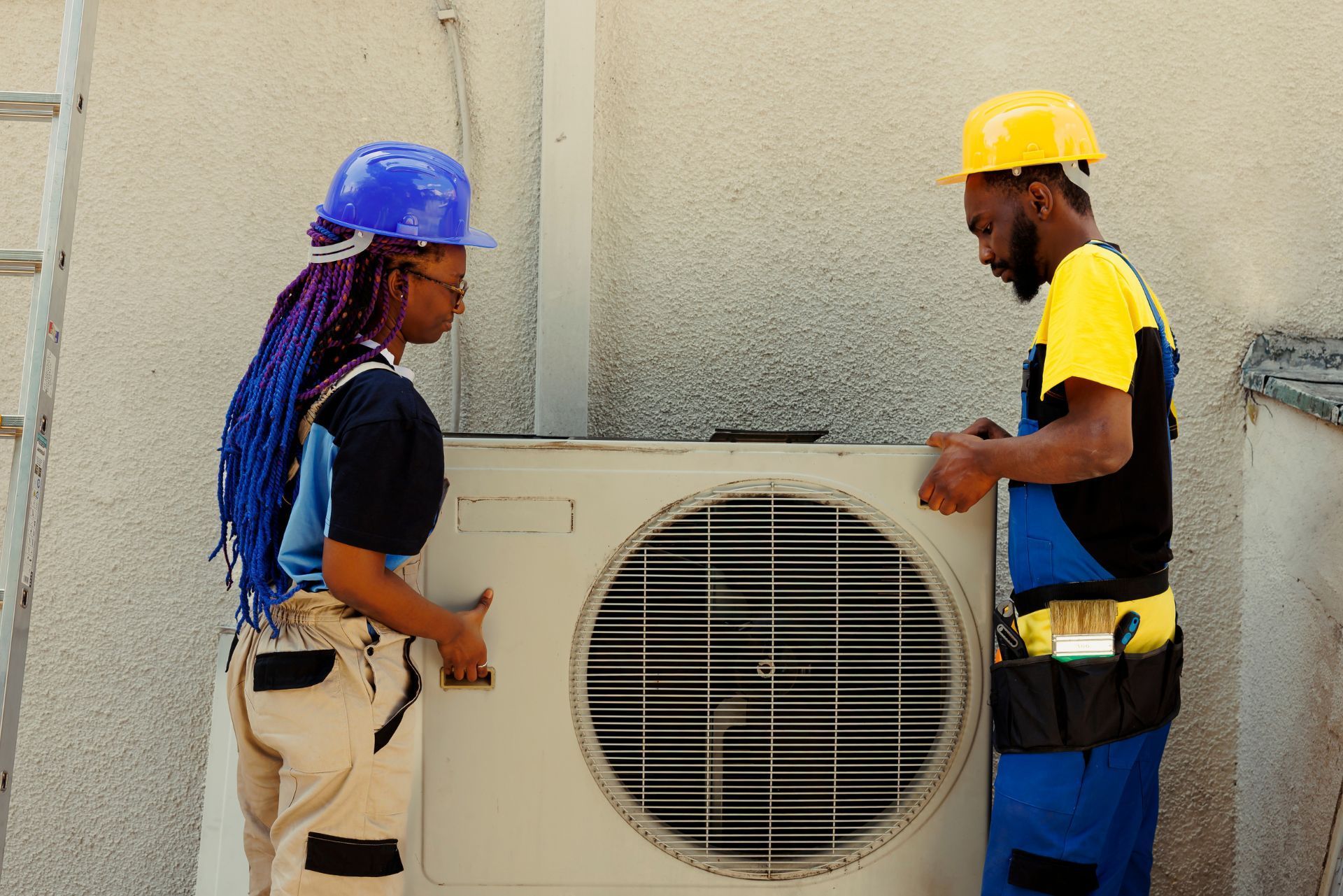Top 3 Recommended Policies

Utah’s HVAC contractors are working in one of the fastest-growing construction markets in the country. As housing developments and commercial projects expand across the state, demand for skilled HVAC professionals continues to rise. With that growth comes increased exposure to risks such as property damage, workplace injuries, and liability claims. The right insurance coverage helps protect your business, your employees, and your reputation. This guide explains how HVAC contractor insurance in Utah works, outlining the key coverage types, cost factors, and strategies to manage expenses effectively. Whether you are just starting out or running a well-established company, understanding your insurance options will help you stay secure and take advantage of opportunities in a rapidly growing market.
The Growing Demand for HVAC Services in Utah
Utah’s construction industry is experiencing rapid expansion, with an annual construction volume exceeding $15 billion. This surge in building activity has created exceptional opportunities for HVAC contractors, who are essential to new residential, commercial, and industrial projects. As the demand for HVAC installation, maintenance, and repair services grows, so does the importance of having comprehensive insurance coverage to protect against potential liabilities.
With the HVAC sector expected to grow by 34% over the next five years, contractors must be prepared not only to capitalize on this growth but also to mitigate the risks associated with increased project volume and complexity. Proper insurance helps ensure that businesses can withstand financial shocks from accidents, property damage, or legal claims. Additionally, as energy efficiency becomes a priority in modern construction, HVAC contractors are increasingly tasked with integrating advanced technology and sustainable practices into their projects. This shift not only enhances the performance of heating and cooling systems but also aligns with the growing consumer demand for environmentally friendly solutions.
The rise of smart home technology is another factor contributing to the burgeoning HVAC market. Homeowners are increasingly looking for systems that can be controlled remotely, offer energy usage analytics, and integrate seamlessly with other smart devices. This trend presents HVAC contractors with the challenge of staying updated on the latest technologies and training their teams accordingly. As a result, ongoing education and certification in new HVAC technologies are becoming essential for contractors aiming to stay competitive in this evolving landscape.
For a broader perspective on the construction boom and its impact on HVAC contractors, check out the insights from Contractors Choice Agency.

Key Insurance Coverages for Utah HVAC Contractors
General Liability Insurance
General liability insurance is fundamental for HVAC contractors, covering claims related to property damage, bodily injury, and legal defense costs. Given the nature of HVAC work—often involving heavy equipment, electrical systems, and confined spaces—the risk of accidental damage or injury is significant.
Utah HVAC contractors face unique risks, including potential property damage during installations and the possibility of employee injuries. This makes comprehensive general liability insurance crucial to protect against costly lawsuits or settlements. The Allen Thomas Group highlights the importance of such coverage in their expert analysis of Utah’s HVAC insurance landscape. Moreover, having this insurance can enhance a contractor's credibility and trustworthiness in the eyes of clients, as it demonstrates a commitment to professional standards and risk management.
Workers’ Compensation Insurance
Worker safety is a top priority in the HVAC industry, and workers’ compensation insurance provides coverage for medical expenses and lost wages if an employee is injured on the job. Fortunately, Utah offers relatively affordable workers’ compensation rates for HVAC contractors, with premiums averaging around $2,710 per $100,000 of payroll. This affordability helps contractors maintain essential coverage without excessive financial burden.
Ensuring that your workforce is protected not only complies with state regulations but also fosters a safer work environment, which can reduce downtime and improve employee morale. Furthermore, many insurance providers offer safety training resources and risk management consultations as part of their workers’ compensation packages, enabling contractors to proactively minimize workplace hazards and enhance overall safety protocols.
Commercial Auto Insurance
Many HVAC contractors rely on company vehicles to transport equipment and technicians to job sites. Commercial auto insurance protects against liabilities arising from vehicle accidents, including property damage and bodily injury claims. Given the frequent travel involved in HVAC work, this coverage is indispensable.
In addition to liability coverage, many policies offer protection for the vehicles themselves, covering damages from accidents, theft, or vandalism. This is particularly important for HVAC contractors, as their vehicles often carry expensive tools and equipment necessary for their work. By investing in comprehensive commercial auto insurance, contractors can ensure that they are not left vulnerable to unexpected costs that could disrupt their operations.
Equipment and Tools Coverage
HVAC contractors invest heavily in specialized tools and equipment. Insurance that covers theft, damage, or loss of these assets can save businesses from significant financial hardship. This coverage ensures that operations can continue smoothly even after unexpected incidents.
Moreover, some policies may also cover rental costs for replacement equipment, allowing contractors to maintain productivity while their tools are being repaired or replaced. This aspect of coverage is particularly beneficial during peak seasons when every day counts, and delays can lead to lost revenue and dissatisfied customers. By safeguarding their essential tools and equipment, HVAC contractors can focus on delivering high-quality service without the looming worry of financial setbacks due to unforeseen circumstances.
Seismic Insurance Considerations
Utah’s geographical location presents a notable risk of seismic activity, with a 43% probability of a major earthquake occurring within the next 50 years. This risk necessitates that contractors not only adhere to seismic building codes but also consider insurance policies that cover earthquake-related damages. Such coverage can be a vital safeguard against catastrophic losses.
In addition to traditional earthquake coverage, contractors may also want to explore policies that include business interruption insurance, which can provide financial support in the event that an earthquake disrupts operations. This type of coverage can help contractors manage ongoing expenses, such as payroll and rent, while they work to recover from the disaster. For more on how seismic risks impact insurance needs, see the analysis from Contractors Choice Agency.
Understanding the Cost of HVAC Contractor Insurance in Utah
Insurance premiums for HVAC contractors vary based on coverage types, business size, payroll, and risk factors. On average, liability insurance premiums range from 1.3% to 2.6% of a contractor’s annual gross revenue. This range reflects differences in business operations, claims history, and coverage limits. Factors such as the contractor's experience level, the types of services offered, and the geographical area serviced can also influence premium rates. For instance, contractors working in urban areas may face higher premiums due to increased competition and higher risks associated with densely populated environments.
One of the most effective ways to reduce insurance costs is through active comparison shopping. Studies indicate that contractors can save between 38% and 73% on liability insurance premiums by exploring multiple providers and policies. These savings can significantly impact a contractor’s bottom line, making it worthwhile to invest time in finding the best deals. Additionally, many insurance companies offer discounts for bundling policies, such as combining general liability with property insurance or workers' compensation. This approach not only simplifies the insurance management process but can also lead to further cost reductions.
ContractorNerd offers valuable insights into the cost dynamics and strategies for obtaining affordable HVAC insurance coverage. Their resources include detailed guides on understanding different types of coverage, tips for assessing risk factors specific to HVAC work, and advice on how to present your business to insurers to secure the best rates. Furthermore, staying informed about industry trends and changes in regulations can help contractors anticipate shifts in insurance costs and adjust their coverage accordingly.

Why Comprehensive Insurance is Essential for Utah HVAC Contractors
Operating in a state with a rapidly growing construction market and unique environmental challenges means that Utah HVAC contractors face a complex risk landscape. Comprehensive insurance coverage protects businesses from financial ruin caused by accidents, natural disasters, or legal claims. For instance, the unpredictable weather patterns in Utah, ranging from heavy snow in the winter to intense heat in the summer, can lead to unexpected equipment failures or project delays. This unpredictability necessitates robust insurance policies that can cover the costs associated with such disruptions, ensuring that contractors can maintain their operations without incurring crippling financial losses.
Beyond compliance and risk management, insurance also enhances a contractor’s credibility with clients and partners. Many project owners require proof of insurance before awarding contracts, making coverage a competitive advantage in securing new business. Additionally, having comprehensive insurance can foster trust and confidence among clients, as it demonstrates a contractor's commitment to professionalism and accountability. This is particularly important in Utah, where customer satisfaction and word-of-mouth referrals can significantly impact a contractor's reputation and future opportunities.
As The Allen Thomas Group emphasizes, the combination of industry growth and inherent risks makes proper insurance not just a safeguard but a strategic business necessity. Moreover, contractors who invest in comprehensive insurance often find that it provides peace of mind, allowing them to focus on their core operations without the constant worry of potential liabilities. This focus can lead to improved efficiency and productivity, ultimately benefiting their bottom line. Additionally, many insurance providers offer resources and training that can help contractors implement best practices in safety and risk management, further mitigating potential issues before they arise.
Tips for Selecting the Right Insurance Provider
Choosing the right insurance provider involves more than just comparing premiums. Contractors should consider the insurer’s reputation, claims handling process, and willingness to tailor policies to the unique needs of the HVAC industry. Working with an insurance agent who understands local market conditions and regulatory requirements can simplify this process. It's also beneficial to seek out providers that specialize in contractor insurance, as they often have a deeper understanding of the specific risks and challenges faced by HVAC professionals.
Additionally, contractors should regularly review and update their insurance policies to reflect changes in business size, services offered, and emerging risks. Staying proactive ensures continuous protection and avoids coverage gaps. For instance, if a contractor expands their services to include new technologies like smart home HVAC systems, it’s crucial to ensure that their policy covers these innovations. Moreover, understanding the nuances of different coverage options—such as general liability, workers' compensation, and equipment breakdown insurance—can help contractors make informed decisions that align with their operational needs.
Networking with other professionals in the HVAC industry can also provide valuable insights into which insurance providers are most reliable. Attending industry conferences or joining local contractor associations can facilitate these connections, allowing contractors to share experiences and recommendations. Additionally, reviewing online testimonials and ratings can offer a glimpse into the insurer's customer service and responsiveness, which are critical factors when a claim needs to be filed. By gathering this information, contractors can make a more informed choice that not only protects their business but also supports their long-term growth and success.
Conclusion
Utah’s HVAC contracting industry is poised for significant growth, driven by a booming construction market and increasing demand for heating and cooling services. However, this growth brings heightened risks that make comprehensive insurance coverage indispensable. From general liability and workers’ compensation to specialized seismic insurance, contractors must carefully assess their insurance needs to protect their businesses and employees.
By understanding the cost factors, exploring multiple insurance options, and partnering with knowledgeable providers, Utah HVAC contractors can secure affordable, tailored insurance solutions that support long-term success. Staying informed and proactive about insurance is a vital step in navigating the challenges and opportunities of Utah’s dynamic HVAC market.
For further guidance and resources on HVAC contractor insurance in Utah, consider consulting industry experts such as
The Allen Thomas Group.
Contact Us
HVACInsure is fully licensed and permitted to sell contractor and commercial insurance in Utah.
We proudly serve clients throughout Utah and maintain partnerships with local Utah insurance carriers to ensure HVAC professionals receive compliant, affordable, and comprehensive coverage that meets project and regulatory requirements.
HVACInsure Focuses on Utah HVAC Contractor Insurance
Salt Lake City – West Valley City – Provo – West Jordan – Orem – Sandy – Ogden – St. George – Layton – South Jordan – Lehi – Millcreek – Taylorsville – Logan – Murray – Draper – Bountiful – Riverton – Herriman – Spanish Fork – Roy – Pleasant Grove – Kearns – Tooele – Cottonwood Heights
Frequently Asked Question
Common HVAC Contractor Insurance Questions in Utah
These FAQs address common contractor questions. As HVACInsure grows, we will update this section with real client experiences and answers.
How does Utah's high desert climate affect my HVAC insurance?
Utah's dry climate and temperature swings create unique challenges. We cover the specific liability of high-altitude desert HVAC work.
What coverage do I need for Salt Lake City's commercial growth?
The Wasatch Front is booming. We cover the liability exposure and certificate requirements of Utah's growing commercial market.
Do I need special coverage for ski resort HVAC work?
Utah's ski industry needs reliable HVAC. We cover the quick-response requirements and high-expectations liability of resort work.
What about coverage for Utah's tech corridor?
Silicon Slopes has significant data center and office needs. We cover technology facility requirements and demanding certificate specifications.
How do Utah's licensing requirements affect my insurance?
Utah requires contractor licensing through DOPL. We ensure your coverage meets state requirements and provide certificates.
Can I get coverage for both urban and rural Utah work?
Absolutely. Utah ranges from dense cities to remote desert. We structure coverage for your actual service territory.

Still have questions?
Can’t find the answer you’re looking for? Please chat to our friendly team!

About The Author: James Jenkins
I’m James Jenkins, Founder and CEO of HVACInsure. I work with HVAC contractors and related trades to simplify insurance and make coverage easier to understand. Every day, I help business owners secure reliable protection, issue certificates quickly, and stay compliant so their teams can keep working safely and confidently.
Recognized by National HVAC Trade Associations
These trusted organizations set best practices and standards that carriers rely on when underwriting HVAC risks.
Membership signifies adherence to HVAC industry standards and contractor best practices.


